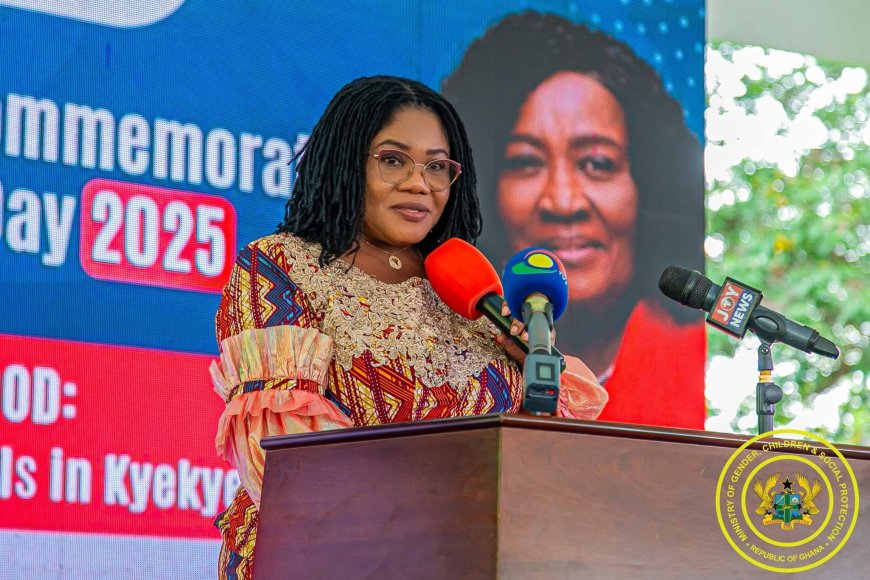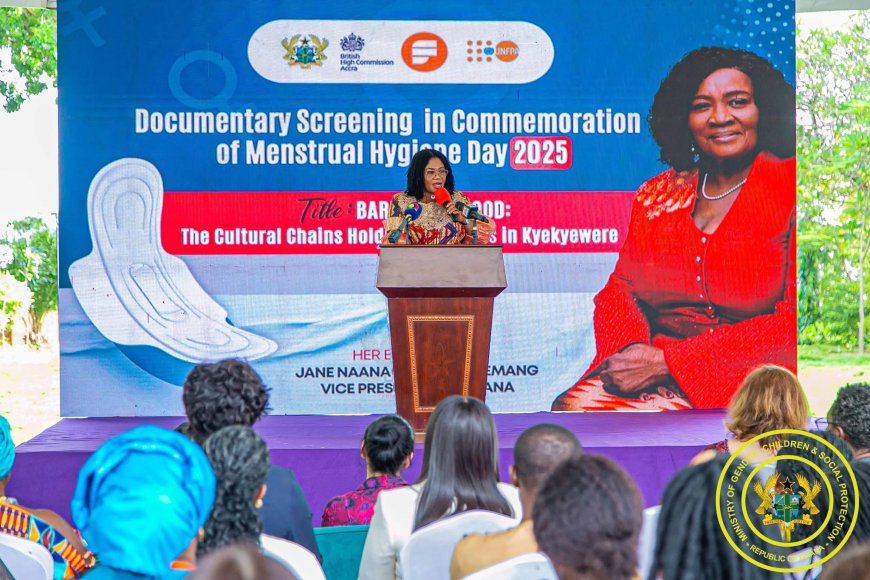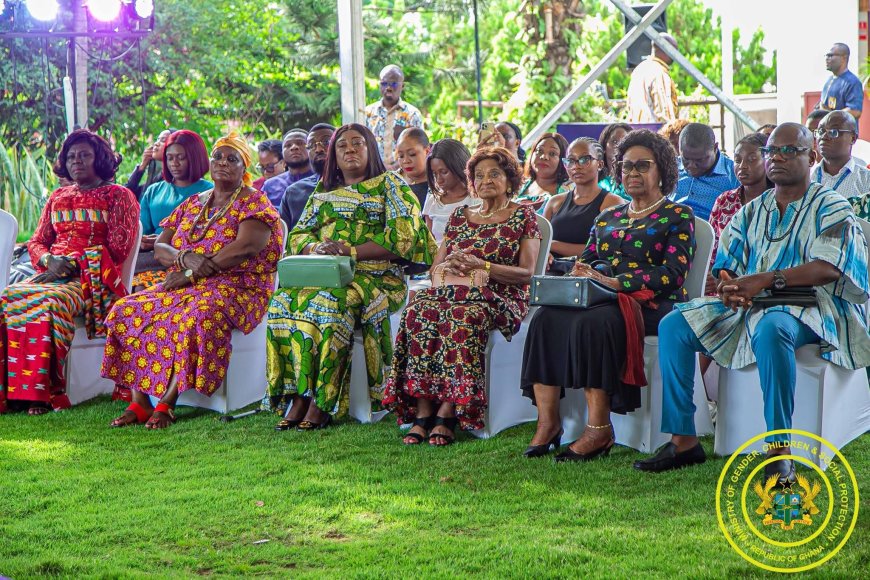MENSTRUAL HYGIENE DAY MARKED WITH FOCUS ON BREAKING CULTURAL BARRIERS

In commemoration of World Menstrual Hygiene Day 2025, a documentary was screened under the auspices of the Office of the Vice President, in collaboration with the Ministry of Gender, Children and Social Protection, the British High Commission, UNFPA, and other development partners.
The event aimed to spotlight the cultural and social barriers that prevent girls from managing their menstruation with dignity.

The documentary, titled “Barred by Blood: The Cultural Chains Holding Back Girls in Kyekyewere,” exposes the cultural myths and discriminatory practices that continue to affect girls’ education, freedom, and self-worth—particularly in rural communities.
Held in Accra, the screening brought together traditional and religious leaders, civil society organizations, development partners, government officials, and the media. It created a platform for honest dialogue and a renewed commitment to ending period poverty and menstrual-related discrimination.
Speaking at the event, the Minister for Gender, Children and Social Protection, Hon. Dr. Agnes Naa Momo Lartey, described the documentary as a call to action and reaffirmed the government’s commitment to advancing menstrual health and hygiene. She stressed that no girl should miss out on education or opportunities because of her period.
This year’s theme, “Together for a Period-Friendly Ghana,” reflects a growing national consensus that menstrual health must be prioritized through education, policy change, and community engagement.
The Minister commended the Office of the Vice President for championing the initiative and acknowledged the contributions of the Ministries of Education and Health, development partners, and the courageous girls and communities featured in the documentary.
“This documentary sheds light on stories that have too often remained in the shadows. It speaks to the lived experiences of our daughters, sisters, and future leaders,” she noted, urging participants to “watch, reflect, and most importantly, act.”
As the documentary continues to spark conversations nationwide, stakeholders were encouraged to translate awareness into meaningful action to ensure every girl can manage her menstruation safely, hygienically, and with dignity.





 HENRY GERCHI
HENRY GERCHI 












